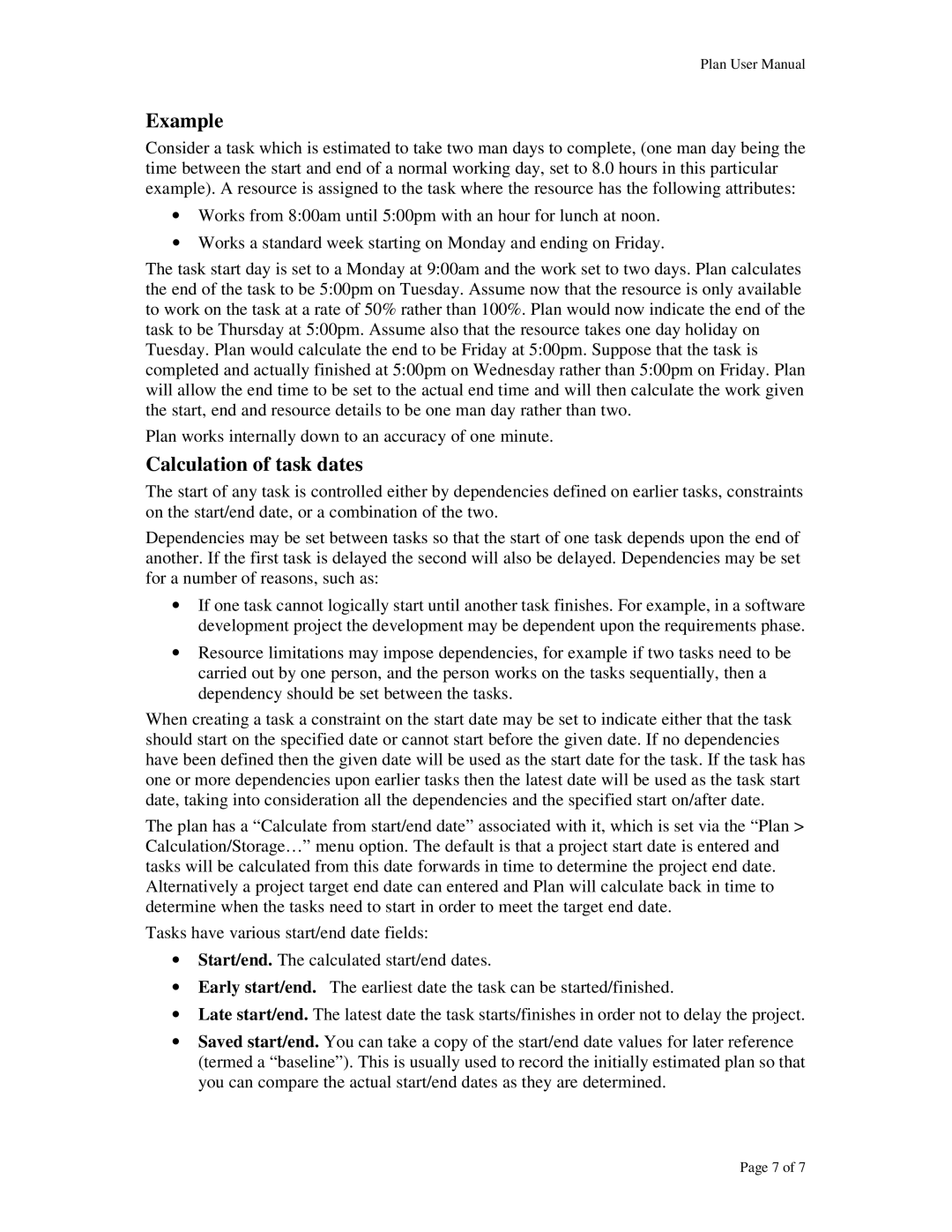Plan User Manual
Example
Consider a task which is estimated to take two man days to complete, (one man day being the time between the start and end of a normal working day, set to 8.0 hours in this particular example). A resource is assigned to the task where the resource has the following attributes:
•Works from 8:00am until 5:00pm with an hour for lunch at noon.
•Works a standard week starting on Monday and ending on Friday.
The task start day is set to a Monday at 9:00am and the work set to two days. Plan calculates the end of the task to be 5:00pm on Tuesday. Assume now that the resource is only available to work on the task at a rate of 50% rather than 100%. Plan would now indicate the end of the task to be Thursday at 5:00pm. Assume also that the resource takes one day holiday on Tuesday. Plan would calculate the end to be Friday at 5:00pm. Suppose that the task is completed and actually finished at 5:00pm on Wednesday rather than 5:00pm on Friday. Plan will allow the end time to be set to the actual end time and will then calculate the work given the start, end and resource details to be one man day rather than two.
Plan works internally down to an accuracy of one minute.
Calculation of task dates
The start of any task is controlled either by dependencies defined on earlier tasks, constraints on the start/end date, or a combination of the two.
Dependencies may be set between tasks so that the start of one task depends upon the end of another. If the first task is delayed the second will also be delayed. Dependencies may be set for a number of reasons, such as:
•If one task cannot logically start until another task finishes. For example, in a software development project the development may be dependent upon the requirements phase.
•Resource limitations may impose dependencies, for example if two tasks need to be carried out by one person, and the person works on the tasks sequentially, then a dependency should be set between the tasks.
When creating a task a constraint on the start date may be set to indicate either that the task should start on the specified date or cannot start before the given date. If no dependencies have been defined then the given date will be used as the start date for the task. If the task has one or more dependencies upon earlier tasks then the latest date will be used as the task start date, taking into consideration all the dependencies and the specified start on/after date.
The plan has a “Calculate from start/end date” associated with it, which is set via the “Plan > Calculation/Storage…” menu option. The default is that a project start date is entered and tasks will be calculated from this date forwards in time to determine the project end date. Alternatively a project target end date can entered and Plan will calculate back in time to determine when the tasks need to start in order to meet the target end date.
Tasks have various start/end date fields:
•Start/end. The calculated start/end dates.
•Early start/end. The earliest date the task can be started/finished.
•Late start/end. The latest date the task starts/finishes in order not to delay the project.
•Saved start/end. You can take a copy of the start/end date values for later reference (termed a “baseline”). This is usually used to record the initially estimated plan so that you can compare the actual start/end dates as they are determined.
Page 7 of 7
